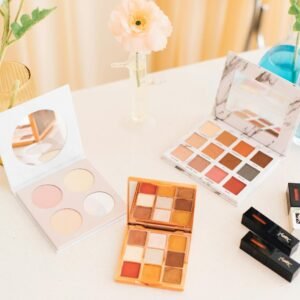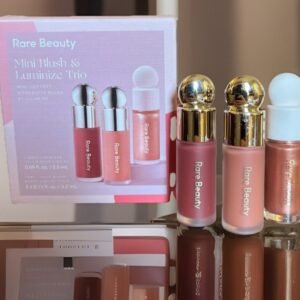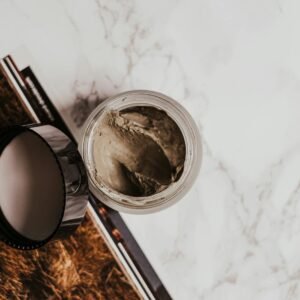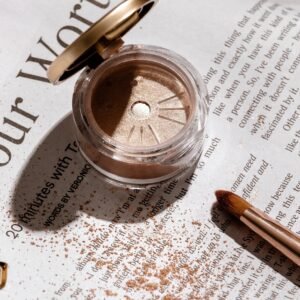In a move that’s generating as much buzz as backlash, Hailey Bieber has sold her skincare brand, Rhode, to e.l.f. Beauty for a staggering deal worth up to $1 billion. The acquisition includes $800 million in cash and stock upfront, with a potential $200 million earn-out based on performance. While many are applauding the young entrepreneur for her business acumen, others see the sale as confirmation of long-standing suspicions: that Rhode was never about passion or innovation, but a well-executed cash grab that mimicked Selena Gomez’s Rare Beauty.
The Sale: A Billion-Dollar Payoff
Launched in 2022, Rhode swiftly made its mark in the crowded beauty market, generating $212 million in net sales from April 2024 to March 2025. The brand gained traction for its minimalist aesthetic and viral marketing tactics, many of which leaned heavily on Hailey Bieber’s celebrity influence. Despite the sale, Bieber is set to remain involved as Chief Creative Officer and Head of Innovation, a role that suggests her departure isn’t complete—though critics argue it’s more about optics than real involvement.
Rare vs. Rhode: The Comparison that Won’t Quit
From the beginning, Rhode has been under scrutiny for its similarities to Rare Beauty, the wildly successful brand launched by Selena Gomez in 2020. Both brands emphasize clean aesthetics, lip product-centric launches, and influencer-heavy rollouts. But it’s not just the product lines that raise eyebrows—it’s the ethos.
Gomez committed 100% of Rare Beauty profits to mental health initiatives through her Rare Impact Fund. In contrast, Rhode’s most visible philanthropic effort—a 1% donation from a New York City pop-up—felt comparatively hollow to many consumers. This difference in mission-driven branding has fed a narrative that Bieber’s line is more about profit than purpose.
Influencer Loyalty and Industry Politics
Another point of contention is the influencer ecosystem. Observers have noted that several beauty influencers who once championed Rare Beauty switched to promoting Rhode following interactions with Bieber or brand-sponsored trips. While this isn’t uncommon in the influencer economy, it has only fueled the idea that Bieber’s brand is buying loyalty rather than earning it organically.
Social Media Speaks: Copycat or Capitalist?
On platforms like Reddit and TikTok, users are vocal. Some argue that Bieber’s entire business strategy is built on closely watching Selena Gomez and following suit—first in fashion, then beauty. Others defend Bieber, citing the high performance of Rhode products and the brand’s genuine appeal.
Yet, the undercurrent of the conversation remains the same: is this about skincare, or is it about strategy? And at what point does “smart business” start to look like imitation?
The Verdict?
There’s no denying that Rhode has been financially successful. But whether it’s a brand with staying power or a well-marketed derivative remains to be seen. The sale to e.l.f. may be a smart exit or a redirection—but to critics, it confirms a long-held belief: Rhode wasn’t built to last—it was built to sell.
As the beauty industry continues to be shaped by celebrity entrepreneurs, the line between authenticity and opportunism grows ever thinner. Whether Hailey Bieber’s next chapter with Rhode will redefine her legacy or reinforce the criticisms depends on what she—and the brand—do next.








